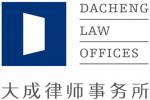In international maritime cargo transport, the non-vessel operating common carrier (NVOCC) business is developing rapidly.
Accordingly, the number of cases in which cargo owners sue NVOCCs is also increasing. In such cases, identification of the carrier is a key issue. Any mistake made in identification will have unfavourable consequences for the cargo owner.
Definition of an NVOCC

Senior Partner
Dacheng Law Offices
According to article 7 of the PRC International Ocean Shipping Regulations (State Council Decree No. 335, in force since 1 January 2002), an NVOCC is an international ocean shipping operator which accepts shippers’ goods in the capacity of a carrier, issues its own bills of lading or other shipping documents, receives payment of freight from the shipper, transports goods internationally by sea via international shipping operators, and bears responsibility as the carrier.
According to this definition, an NVOCC:
- is a carrier whose contract with the shipper is a contract for the international transport of goods, rather than an international cargo transport agency contract;
- issues its own bills of lading and collects freight, not agency fees. (These are the characteristics which make an NVOCC different from a cargo agent.)
- does not itself own or operate a vessel: after collecting cargo in the capacity of a carrier, it must commission an international shipping operator to transport the goods (these are the characteristics which make an NVOCC different from a ship owner or ship operator); and
- assumes the risk and responsibility while enjoying the exemption or limitation of liability of a carrier, but as such can be sued by the owner of the cargo.
The identification of NVOCCs
Because there are many parties involved in the international maritime transport of goods, it can be difficult to identify which party is acting as an NVOCC. When attempting to ascertain the identity of an NVOCC, Chinese courts typically take into account the following factors.
The first factor is the nature of the case. The identification of an NVOCC is only usually an issue in disputes over contracts concerning the international carriage of goods by sea.

Lawyer
Dacheng Law Offices
The next factor is the flow of business. NVOCC business usually involves two kinds of contractual relationship and two sets of bills of lading. When an NVOCC, acting in the capacity of carrier, is engaged by a shipper to carry cargo, and issues its own bills of lading (“house bills of lading”), a contract is formed between the shipper and the NVOCC. When the NVOCC, acting in the capacity of shipper, charters or books space on a vessel in its own name from an actual carrier, which issues a bill of lading to the NVOCC (an “ocean bill of lading”), a contract is formed between the NVOCC and the actual carrier. Thus, as far as the shipper is concerned the NVOCC is the carrier that is liable for the transport of the cargo from start to finish and is obliged to deliver it in accordance with the bill of lading; while as far as the actual carrier is concerned the NVOCC is the shipper because it holds the actual carrier’s bill of lading for the shipping and has the right to demand that the actual carrier deliver the goods to it.
If an international cargo agent engages in freight forwarding business, it should act in the capacity of an agent for the shipper and carry out the duties of an agent. Operationally, it should act as the shipper’s agent to charter vessels from shipping companies or book space on them. The column for the shipper on a shipping company’s bill of lading should also directly display the name of the cargo owner.
As a final factor, courts may also consider the ways in which fees are charged. Because an NVOCC charges in a different way from a cargo agent, a review of the charging arrangements can help a court to identify whether a party is an NVOCC or a cargo agent.
As an NVOCC receives the goods of the shipper in the capacity of a carrier, issues its own bills of lading and accepts the significant risks and liabilities of a carrier, what it charges the shipper are freight. What it earns is the difference between the freight charged to the shipper and freight paid to the actual carrier. Accordingly, if what a party receives is a freight fee and what it earns is the difference between the freight fees, it can be inferred that it is an NVOCC rather than a cargo agent.
Unlike an NVOCC, a cargo agent acts as an agent for the shipper. It assumes the less significant risks and liabilities of an agent, earning money from the agent’s fees or commissions and not from the difference in freight.
Agents who breach regulations
To guarantee that an NVOCC can assume the responsibility of a carrier and to reduce the risk taken on by the cargo owner, the abovementioned Regulations and related implementing rules require that an NVOCC register bills of lading with the authorities under the State Council in charge of transport and pay a surety or take out NVOCC liability insurance. Unless an NVOCC does so, it may not engage in non-vessel carrier services.
However, in practice, many cargo agents breach the regulations, engage in non-vessel carrier business and issue their own bills of lading.
Although there are disagreements among legal experts over the question of whether in such cases the cargo agents should be recognized as NVOCCs, and whether bills of lading issued by them should be recognized as valid, in practice Chinese courts do identify them as NVOCCs and do recognize bills of lading issued by them as valid.
Nonetheless, such a pragmatic approach does not mean that the courts recognize or encourage NVOCCs engaging in non-vessel carrier business in breach of the regulations. It is simply thought more appropriate to deal with such behaviour administratively, allowing the parties involved to be issued with administrative penalties.
Yu Feng is a senior partner and Yu Yaodong is a lawyer at Dacheng Law Offices
Dacheng Law Offices LLP, Shanghai
3/F China Development Bank Tower
500 Pudong South Road
Shanghai, 200120
Tel: +86 21 3872 2401
Fax: +86 21 5878 6866
E-mail:
henry.lee@dachenglaw.com
jessy.wang@dachenglaw.com






















